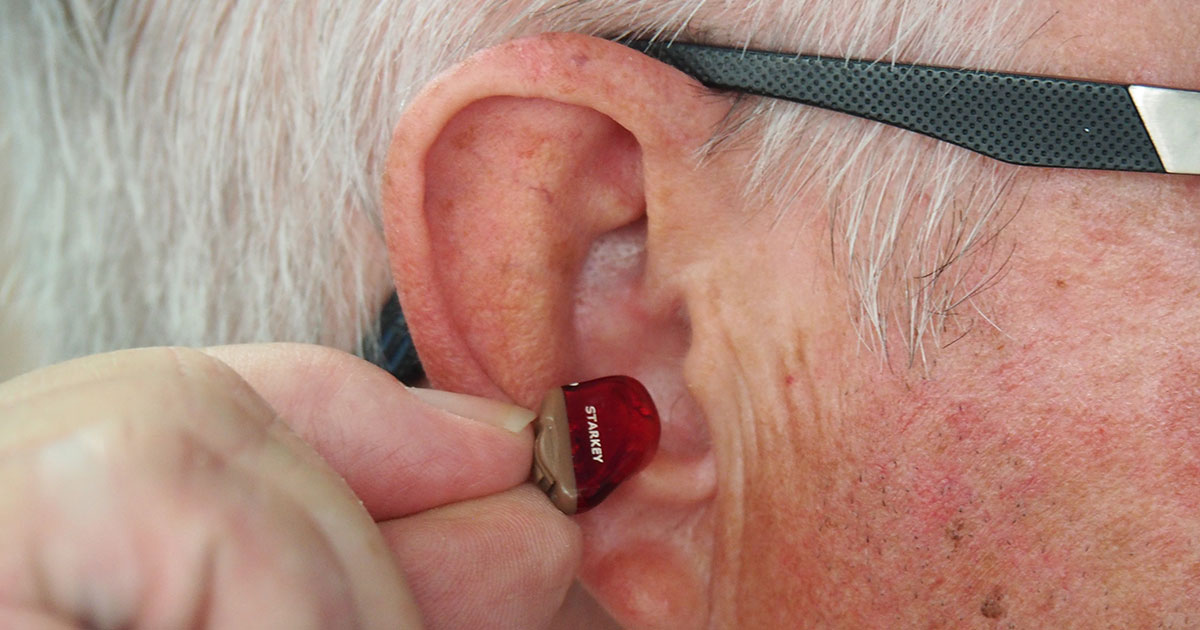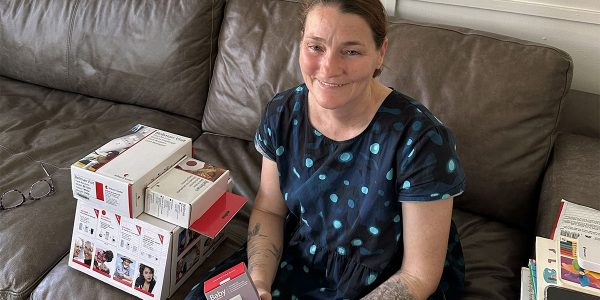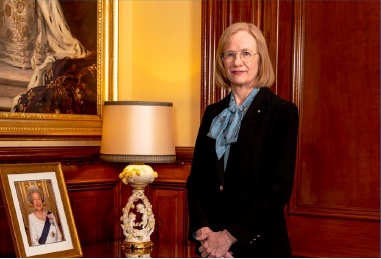Issues around the sale of hearing aids

Noticed any aggressive marketing campaigns involving hearing aids lately? We certainly have and we’ve seen a few consumers needing support to navigate their way through the service system too.
A few years ago the Australian Competition and Consumer Commission (ACCC) was alerted to potential consumer protection issues in the hearing aid industry through the ABC’s Background Briefing program, Have I got a hearing aid for you.
You may have seen the ABC’s ‘The Checkout’ cover similar material in Hearing Clinics: Had It Up To Hear. If you haven’t seen it we recommend you do. We have included it at the bottom of this article.
To better understand the issues, the ACCC conducted enquiries with consumers and industry participants and identified three key issues relating to the sale of hearing aids:
- Sales may be driven by commissions and other incentives rather than consumer need
- Cost and performance of hearing aids
- Treatment of vulnerable consumers
While the report is a few years old now we believe it is still highly relevant and important reading for anyone embarking on, or even some way through, their hearing loss treatment journey.

1. Sales may be driven by commissions and other incentives rather than consumer need
The survey and subsequent discussions indicated that sales commissions and incentives are commonly used to motivate clinicians to sell hearing aids, particularly in clinics run by major operators. Commissions can be as much as 15 per cent and may be calculated in a number of ways, including by gross profit margin or net fees paid by consumers. More expensive hearing aids generally attract higher commissions.
Commissions and other incentives are generally not disclosed to consumers during consultations. If disclosure does occur, it is often in the terms and conditions of sales receipts that are only available to the consumer after a decision has been made to purchase a particular hearing aid and the transaction is completed.
Some major clinics provide sales training to clinicians and set sales performance measures. These measures may include average selling price per hearing aid, number of hearing aids sold, number of assessments that result in sales, number of high-end devices sold, and number of “top-ups” for consumers with vouchers to purchase subsidised hearing aids as part of the Australian Government Hearing Services Program.
Clinicians expressed a range of concerns, including:
- several of the large hearing clinic operators in Australia are owned by hearing aid manufacturers
- some hearing aid manufacturers offer inducements to clinicians to sell their products, including all-expense-paid travel to overseas conferences and consumer electronics
- some clinicians consider their employers are more focused on sales than providing independent advice, with some choosing to change employers to avoid the pressure to sell hearing aids
- some hearing clinics focus on sales and profits at the expense of consumers’ best interests and devices may be recommended based on commissions rather than consumers’ needs
- the failure of clinicians to meet sales targets or key performance indicators may result in performance management up to, and including, termination of employment
- sales performance, including underperformance, is regularly reported at staff meetings, and
- hearing clinic operators encourage clinicians to display their qualifications and to reinforce their professional experience when dealing with consumers in order to encourage consumers to rely on their professional advice.
Consumers raised a different set of concerns, including:
- feeling pressured into purchasing hearing aids or more expensive hearing aids
- feeling they could not trust clinicians to provide independent advice and recommendations
- being left with the impression that clinicians were more interested in selling hearing aids than providing independent healthcare advice
- being advised to purchase hearing aids and later learning that their hearing impairment was the result of an undiagnosed, treatable medical condition, and
- being unable to independently verify clinicians’ advice and recommendations.
- Cost and performance of hearing aids
2. Cost and performance of hearing aids
Hearing aids range in price from around $1,000 to over $15,000 per pair. During the survey the ACCC heard debate around the extent of additional benefits offered by high-end devices. They also found dissatisfaction among consumers with the performance of hearing aids across the price range.
Some consumers identified price as a barrier to purchasing hearing aids. Some clinicians expressed concern about older consumers re-mortgaging their homes or entering into finance plans to pay for high-end hearing aids.
In addition to concerns about price, a number of consumers indicated that the performance of their hearing aids did not meet their expectations. Several consumers reported that their hearing aids were difficult to use, uncomfortable to wear, and required recurrent adjustments. Some consumers reported that high-end hearing aids were of limited assistance in noisy environments, such as in restaurants. Several consumers indicated that they do not use their hearing aids due to dissatisfaction with their performance.
Several clinicians stated that the key difference between the prices of hearing aids is software that can provide extra functionality to consumers. For example, a consumer who enjoys live music may prefer hearing aids with software that offers certain features over basic ones. However, a number of clinicians noted that many older consumers do not lead a lifestyle that requires the increased functionality of high-end hearing aids.
Clinicians indicated that the information relied on to recommend that a consumer purchase high-end hearing aids is often scant. A number of clinicians expressed concerns that consumers are not provided with adequate information to make an informed choice about which hearing aid is appropriate for their needs and budget.
Both clinicians and consumers raised concerns about consumers being offered only one or a limited selection of suitable hearing devices during consultations.
There was also a suggestion that hearing aids are more expensive in Australia than in other countries. Consumers outlined difficulties in having hearing aids that were purchased online from other countries, such as the United States, fitted and serviced in Australia, despite being the same models as sold here.
3. Treatment of vulnerable consumers
The ACCC enquiries revealed that consumers who purchase hearing aids are often vulnerable as a result of their hearing impairment, age, age-related health issues, disability, income level, or a combination of these factors. Such consumers may be more vulnerable to persistent sales techniques and methods.
The treatment of vulnerable consumers is of particular concern in the context of the Australian Government Hearing Services Program, which is intended to provide eligible people with access to a range of fully subsidised hearing services. People who are eligible for assistance under the program are generally vulnerable due to their age, health or income level.
The ACCC heard many stories from family members of vulnerable consumers about their experiences in dealing with unscrupulous clinicians.
In one instance an elderly and disabled resident of an assisted living home was visited by a clinician and sold hearing aids with no one else present during the consultation or sales transaction. The clinician’s visit was arranged by the assisted living home. A family member later helped the consumer obtain a refund.
In another instance, an older consumer with dementia attended a free seminar run by a hearing clinic operator at a local community organisation. The consumer, who receives a government pension, subsequently purchased a pair of $13,000 hearing aids through a two-year finance plan from the hearing clinic operator. The hearing aids are unsuitable for the consumer’s needs and abilities and are not used. Despite the efforts of the consumer’s family member, the finance plan could not be cancelled.
Education is the key
It’s important to highlight the issues above as it gives consumers an insight into the issues within the industry and things to look out for when acquiring hearing aids. Knowledge and education is key to providing the extra transparency needed in the industry.
The ACCC produced a handy guide that will help you when you are about to purchase hearing aids. The ACCC published resource, Hearing Aids and Devices – Information to Make an Informed Choice can be found online. It’s a useful resource, particularly for those shopping for a device for the first time.
Got your own hearing aid purchasing story? Why not share it with us. We’d love to hear from you! And don’t forget to check out The Check Out’s report below.
The above is adapted from the ACCC’s ‘Issues Around the Sale of Hearing Aids, Consumer and Clinician Perspectives’, 3 March 2017. A full copy of the report is available on the ACCC’s website.
Highlight photo by Mark Paton on Unsplash





